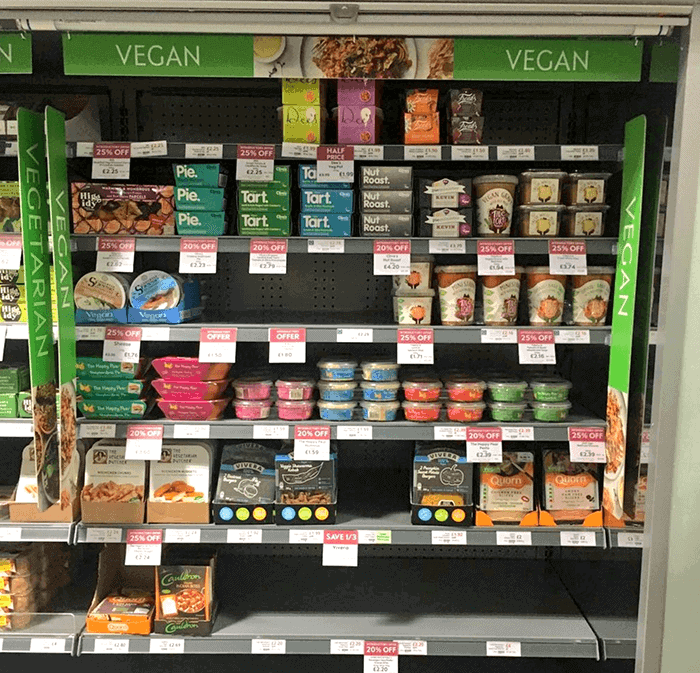When it comes to reducing meat consumption, sustainability takes a back seat in the face of the cost-of-living crisis. According to a new study by Mintel, the perceived financial benefits of consuming less meat jumped in 2022.
When asked about the benefits of eating less meat, a new Mintel study conducted among UK consumers shows that the percentage of consumers who believe eating less meat is “a good way to save money” increased from 27% in 2021 to 43% in 2022. The view that reducing meat consumption is “better for the environment” decreased from 47% in 2021 to 41% in 2022, due to a reportedly lower perception of the environmental benefits of abstaining from meat in 2022.

Overall, one in ten Britons (10%) is not a meat eater, including 14% of 16-24 year olds and only 5% of over-65s. Nearly half (47%) of adults either do not eat meat/poultry or have reduced their consumption. Another 14% have not yet reduced their meat consumption but would be interested in doing so.
Vegan trend continues “unabated” in NPDs
While less than 2% of Britons say they follow a vegan or plant-based diet, according to the Mintel Global New Products Database (GNPD), the vegan trend continues unabated in terms of new product development. More than a quarter (27%) of all packaged food and drink product launches in the UK will be declared vegan or without animal ingredients in 2022, compared to one in six (16%) in 2018.
Alice Pilkington, senior food and drink analyst at Mintel, says: “Public awareness of the role meat and dairy plays in the climate crisis expanded between 2018 and 2021, contributing to the widespread perception that eating less meat benefits the environment. This overtook weight management and saving money as the previously most commonly perceived benefits of eating less meat. In 2022, however, perceptions of the environmental benefits of reduced meat consumption took a hit, reflecting how sustainability in general has become less important to some given current pressures on household budgets.”





